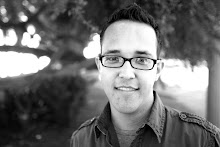The following is an essay I wrote for one of my grad school applications:
To say that we live in a multifaith, multiethnic, multinational society is to recognize its complexity and its diversity. Our society is marked by many competing values and beliefs, each one making truth claims. Because of their significant variety, there is pressure to be tolerant and accepting of all of the different options. While it may be tempting to view such inclusiveness as an imperative for living in a pluralistic society, this is not true. There is nothing that requires us to downplay our own beliefs or to honor others’ values. Although politically incorrect, it is entirely possible to reject all but one’s own beliefs as misguided, errant, and evil. The only true imperative for living in a pluralistic society is that of developing an identity, both personal and corporate, in relation to others in society.
In order for us to live and interact meaningfully within society, we must have some starting point. There is very little that we can say or do if we do not know who we are in relation to those around us. Without the guides of identity, there is no possibility of intercourse because we will have nothing to say and no way of interpreting what we hear. For us to truly live in a pluralistic society, it is essential that we develop a balanced identity that is defined both independently of others and in relation to others.
The core of our identity is formed by the convictions and values that we have inherited or chosen from among our variety of options. It is forged independently of those outside our particular tradition. However, our identity is not complete without understanding how it is that we relate to those outside of ourselves. We must establish relationships with other groups and cultures in order to demarcate the boundaries of our identity. It is only from the starting point of identity that we can truly converse with society.
The formulation of identity is an on-going process because the relationships that help define it are fluid. Because the people we interact with help us to create our identity, they have a tremendous impact upon us. Our exchange with them alters the way we see the world and ourselves. As a result we move from merely acknowledging diversity to valuing it. It is because of this level of respect for those who are different from us that we are able to carry on honest and edifying conversations with them.
As we dialog with a pluralistic society there is a tendency to become increasingly accepting of its various values and beliefs. To a large extent this is healthy and helpful for continuing identity formation, but we can take it too far. One of the potential pitfalls that we face in such a diverse society is the temptation to become overly inclusive. Inclusiveness for its own sake leads only to a pale gray end, where there is no room for opinion, and the conversation becomes nothing more than an endless repetition of “yes.” Without the ability to distinguish ourselves from others, this extreme inclusiveness can lead to a dramatic loss of identity.
When we acknowledge that we live in a pluralistic society, we face the challenge of finding our identity. We must strike a balance between our convictions and others’ influence in order to create an identity that will allow us to interact meaningfully with society. If we are to engage society, we must be attentive enough to hear what others say and we must also be confident enough to have something to say back.
Friday, January 11, 2008
Subscribe to:
Post Comments (Atom)


No comments:
Post a Comment
Let me know what you think....